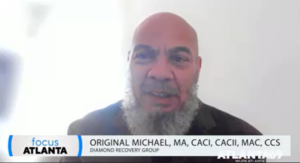In this comprehensive article, we delve into the intricate dynamics of addiction within romantic relationships, guided by the expertise of Sergio Muriel, COO of Diamond Recovery Group and a seasoned professional in the field of mental health and addiction counseling. Drawing on his extensive experience and specialized knowledge, we aim to provide a clear, informed perspective on recognizing, addressing, and managing addiction in relationships. Join us as we explore the impact of addiction on relationships, learn to identify the signs, and understand the journey towards recovery and healing.
The Impact of Addiction on Relationships
Addiction can lead to a myriad of challenges in a romantic relationship, including communication breakdowns, trust issues, emotional distance, codependency, financial strain, and a negative impact on children. The core issue often revolves around the breakdown of communication, affecting every facet of the relationship’s ability to recover and heal.
Recognizing the Signs of Addiction
It’s crucial to identify addiction early for effective intervention. Common signs include changes in sleeping and eating habits, financial irregularities, neglect of responsibilities, lies, and excuses. These behaviors often lead to mental health decline and, in some cases, legal issues.
Approaching a Partner about Addiction
When suspecting addiction, approach your partner from a supportive, non-judgmental stance. It’s often helpful to engage professionals in planning these conversations. Effective communication strategies include choosing the right time and place, using ‘I’ statements, and practicing active listening.
Addiction’s Toll on Intimacy and Mental Health
Addiction typically causes communication breakdowns, leading to a decline in physical and emotional intimacy. The identified person (IP) may experience isolation, depression, anxiety, and a shift towards codependency, turning the relationship into a survival challenge rather than a fulfilling partnership.
Supporting vs. Enabling
Support involves encouraging positive, recovery-based decisions, whereas enabling includes ignoring or minimizing the problem, financial support without accountability, avoiding confrontation, and lack of boundaries.
The Right Time for Professional Help
Professional help should be sought when internal interventions fail, and the relationship experiences continuous emotional and psychological strain. Experienced professionals can provide clinical assessments and recommend appropriate treatments.
Managing Emotions and Setting Boundaries
It’s important to manage emotions through active listening, setting realistic expectations, and practicing self-care. Healthy boundaries can be set by communicating them clearly, maintaining consistency, and seeking professional guidance.
Understanding Addiction Transfer
Addiction transfer occurs when an individual replaces one addiction with another. Focusing on treating underlying issues such as childhood trauma can prevent this phenomenon.
Long-Term Recovery in Relationships
Long-term recovery involves mutual support, maintaining sobriety, engaging in continuous treatment, setting goals, and identifying relapse triggers. Partners can contribute by educating themselves, practicing empathy, setting boundaries, and promoting healthy lifestyles.
Personalized Treatment Options
Treatment should be tailored to individual needs, considering factors like the addiction’s type and severity. Partners can support the decision-making process by maintaining open, non-judgmental communication.
Navigating and Overcoming Addiction in Relationships: A Success Story
A particularly compelling aspect of understanding addiction within relationships is the real-life success stories that demonstrate resilience, adaptability, and the power of committed recovery efforts. Sergio Muriel shared a poignant example that vividly illustrates these principles.
The Journey of a Couple Through Addiction Recovery
The story begins with a couple struggling in the early stages of recovery. The identified person (IP), actively working towards sobriety, experienced significant behavioral changes that, although positive, posed new challenges for the relationship. These changes, while essential for recovery, introduced a new dynamic that the couple needed to navigate.
The Role of Professional Support and Therapy
Recognizing the need for external support, the couple sought assistance through couples therapy. This decision was pivotal. With the help of a therapist, they began to understand the evolving dynamics of their relationship amidst recovery. They learned to set realistic expectations and communicate more effectively, focusing on expressing their feelings and needs constructively.
The Evolution of Their Relationship
Through therapy, the couple worked on various aspects of their relationship, particularly in communication. They learned to respond to each other’s needs, adapting to the changing landscape of their partnership. This period of adjustment wasn’t without its challenges, but their commitment to the process and to each other remained steadfast.
Celebrating Milestones and Building a Family
A significant testament to their progress and resilience was the birth of their son. This joyful event marked not only a personal milestone but also a symbol of their growth and healing as a couple. The arrival of their child represented a new chapter, bringing both joy and new challenges, which they were now better equipped to handle together.
Continuous Effort and Commitment
The couple’s journey underscores that recovery and relationship growth are ongoing processes. They continue to seek couples therapy periodically, adapting to different stages of their relationship. This proactive approach keeps their communication lines open and allows them to work through challenges effectively.
Key Takeaways from Their Story
This success story highlights several important aspects of navigating addiction within a relationship:
- Change is a Constant: Recovery brings about change, not just in the individual grappling with addiction but also in relationship dynamics.
- Professional Support is Crucial: Seeking therapy or counseling can provide the tools and guidance necessary to adapt to these changes.
- Communication is Key: Open, honest, and constructive communication is essential for understanding and responding to each other’s needs.
- Celebrating Successes Together: Acknowledging and celebrating milestones, like the birth of a child, can strengthen the bond and resilience of the relationship.
- Commitment to Continuous Growth: Recognizing that both individual and relationship growth is an ongoing journey can help maintain a healthy, supportive partnership.
Advice for Partners Suffering Through Addiction and Relationships
The most crucial advice for partners is to prioritize self-care and maintain open, honest communication. This approach helps adjust to each other’s needs and contributes to the overall health of the relationship.
Article Source
https://www.wfla.com/bloom-tampa-bay/bloom-relationships/expert-understanding-and-managing-addiction-in-relationships/






